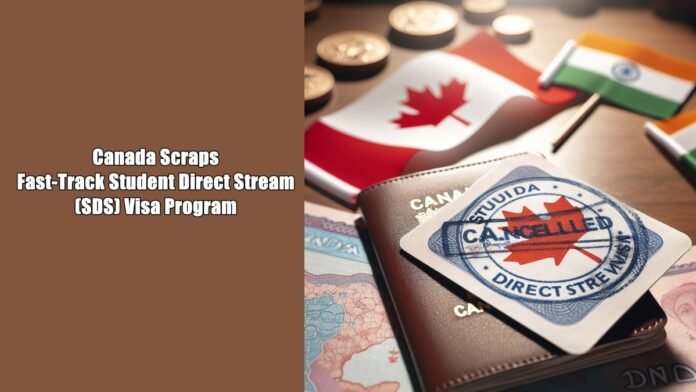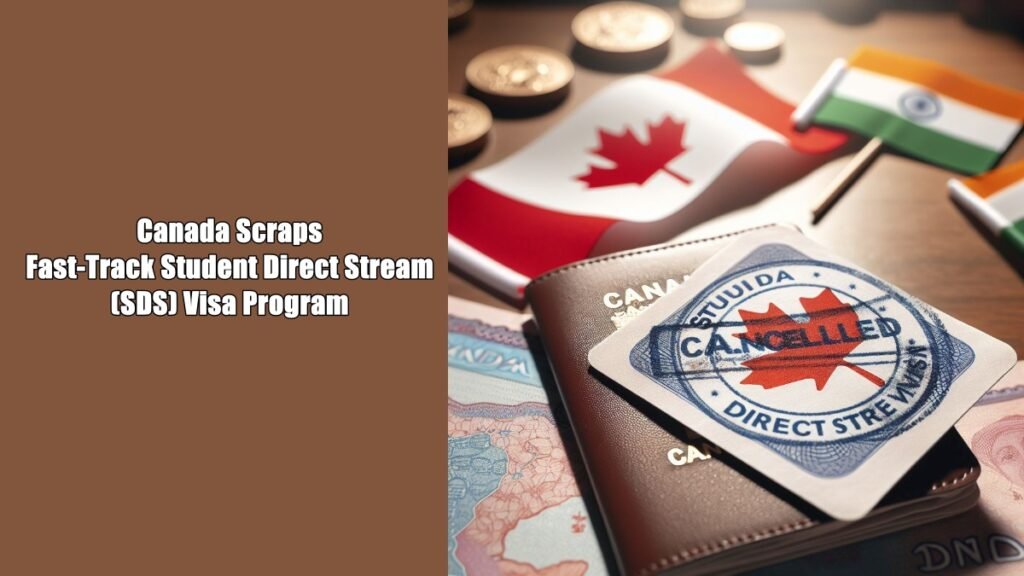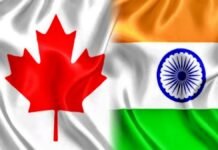
New Delhi: In a major policy shift, Canada has announced the discontinuation of the Student Direct Stream (SDS), a popular expedited visa processing program that has enabled thousands of international students, particularly from India, to fast-track their study permit applications. As of 2:00 p.m. ET on November 8, 2024, applicants from India and 13 other countries who once benefited from this streamlined process will now have to apply through the standard study permit channel, facing longer processing times and more rigorous steps.
Launched in 2018, the SDS was aimed at accelerating the visa process for post-secondary students from selected countries, including India, China, Pakistan, the Philippines, and Brazil. Alongside the SDS, Canada also offered a similar program known as the Nigeria Student Express (NSE) for Nigerian students. However, in its latest statement, the Canadian government emphasized the need to end these programs to “strengthen program integrity, address student vulnerability, and ensure fair access to all applicants.”
Implications for International Student Aspirants
The termination of the SDS and NSE programs marks a significant change for students hoping to study in Canada. While SDS and NSE applications received before the cutoff will still be processed under these faster streams, future applicants must navigate the lengthier standard study permit application, though Canada will continue to accept Guaranteed Investment Certificates (GICs) as proof of financial stability. Canadian authorities reassured students that eligibility criteria remain unchanged but emphasized the importance of meeting all regular permit requirements under the revised policy.
This move comes amid a challenging backdrop for Canada, grappling with economic issues such as strained healthcare resources, housing shortages, and rising living costs. Observers note that Canada’s immigration and visa policies are evolving in response to these domestic pressures, as well as broader discussions on immigration caps and resource allocation.
India-Canada Diplomatic Rift and Its Repercussions
The SDS termination comes at a fraught moment for India-Canada relations, following a diplomatic fallout sparked by allegations from Canadian Prime Minister Justin Trudeau. In a controversial statement, Trudeau accused Indian intelligence agents of involvement in the assassination of Hardeep Singh Nijjar, a Khalistani separatist leader, in British Columbia. India categorically rejected these accusations, labeling them “politically motivated” and “absurd,” prompting an unprecedented exchange of diplomatic expulsions between the two nations.
In October 2024, Canada expelled six Indian diplomats as part of its investigation into Nijjar’s killing. India, in response, expelled six Canadian diplomats, including Canada’s Acting High Commissioner to India, Stewart Ross Wheeler, and other senior officials. This diplomatic standoff has strained cooperation in various fields, raising questions about the future of academic exchanges and international programs that support Indian students in Canada.

Next Steps for Prospective Students
The elimination of the SDS program introduces new complexities for international students from India, China, and other former SDS-eligible countries, potentially impacting Canada’s reputation as a top destination for higher education. Prospective students are encouraged to familiarize themselves with the standard study permit application process, which includes meeting financial, academic, and medical criteria.
Amid these developments, tribal organizations and academic institutions are lobbying the Canadian government to revisit the policy, hoping for additional support for international students who contribute significantly to Canada’s educational and economic landscape.





















































